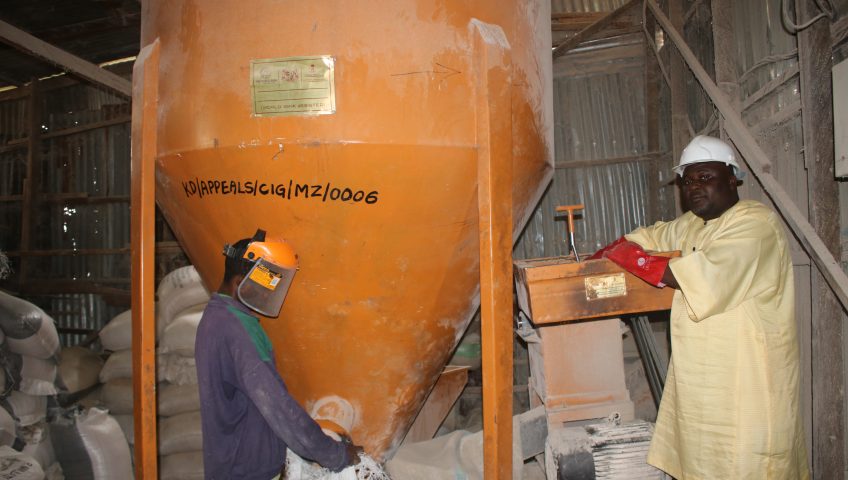The success story of Abdulmumini Aliyu’s agro-allied business, ‘Multiple Result Agro Allied Ltd’, located in Rigachikun, Igabi Local Government Area of Kaduna State showcases the positive impact of the APPEALS Project in the state.
Before the APPEALS Project intervention, Abdulmumini Aliyu was using a 1.5 metric tons capacity milling machine, which processed 3 tons of maize per hour. However, with the support from the APPEALS Project, he received a more advanced 2.5 metric tons capacity milling machine, capable of producing 10 tons of maize per hour. This significant upgrade in equipment greatly improved his processing capacity and efficiency.
After the project intervention, the processing capacity increased from 168 tons of maize per week to an impressive 560 tons per week. This substantial increase in productivity not only benefited Abdulmumini Aliyu but also had a positive impact on the livelihoods of his employees and the community.
With the increased capacity, the company employed 10 additional staff to meet the growing demands, increasing the number of employees from 15 to 25. This created more job opportunities and improved livelihoods for the employees. Among the newly employed staff, Shehu Yakubu, a 25-year-old, joined as a technical officer, and Zainab Shittu became the marketing officer. These employment opportunities they say, brought positive changes to their lives, offering them a chance to earn an income.
The success of the APPEALS Project is also reflected in the positive feedback from customers like Haruna Musa, poultry feed seller from Rigachikum area. He testified that the new milling machine significantly improved the quality of feed they purchase from ‘Multiple Result Agro Allied’. The feed became more digestible, palatable, and effective in enhancing animal production. This not only benefited the feed seller’s business but also contributed to the overall improvement of the livestock sector in the area.
The APPEALS Project in Kaduna has supported over 1000 Maize processors comprising 52 Commodity Interest Groups (CIGs) and 21 small and medium enterprises (SMEs) with the aim of enhancing production of efficient animal feeds and improving livelihood of the people.



